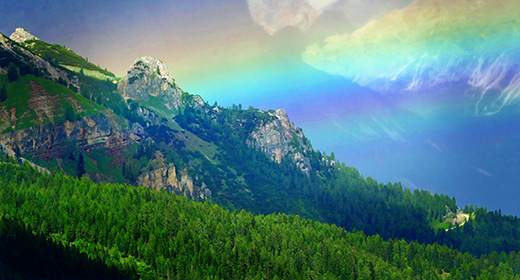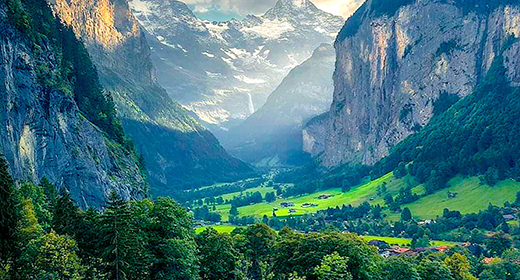by Ed and Deb Shapiro: What is your greatest fear? Ed’s mother died when he was only five days old. How does a child grow up without the fear of losing loved ones? Deb had an abusive father. How does she trust men to not be abusive?
Deb had an abusive father. How does she trust men to not be abusive?
It’s not unusual to live with a deep fear that a worst-case scenario, such as becoming homeless, could happen to us. Many people find themselves living on the street through no fault of their own. Yet how many of us acknowledge street people as fellow human beings with needs no different from ours, simply without the means to fulfill them? Recently, Ed was talking with a street person who turned out to be the son of an old friend. But instead, how often do we avert our eyes when we go by, pretending they don’t exist?
In an attempt to find out what it would take to see homeless people as being no different from himself, Rev. James Morton, the dean of St. John the Divine Cathedral in New York, began an experiment. As Zen teacher Grover Gauntt told us:
He designed what he called the plunge: an act of diving into unknown waters and getting completely whacked and disorientated so you can orientate yourself in a new way. And he applied this to the street by sending his ministers out without any money, no place to live, no identification, just like the people they were serving.
From here developed the idea of street retreats: purposefully living on the street for a few days to bring participants into the very midst of society’s neediest, and by doing so to seek a sense of inclusivity. Bernie Glassman, founding teacher of the Zen Peacemaker Order, talked to us for our award winning book, BE THE CHANGE, How Meditation Can Transform You and the World. He told us:
Street retreats are where we live and practice meditation on the streets, begging and sleeping rough just as any homeless person would. I included meditation, as I wanted to show that meditation is not just sitting on a cushion but reaches every aspect of life. It’s a way of bringing us into a state of inclusivity and of not-knowing, and when that happens the experience of oneness arises. But at the same time we have the experience of not existing. When you’re homeless and begging, people walk past you, you’re completely ignored, you simply don’t exist. When you’ve been so ignored, it becomes impossible to do the same to another person, you can no longer look away from anybody or anything.
We all dread stepping out of our comfort zone, of what is familiar and known. But when we do, we can discover enormous reserves of strength within ourselves, as Oscar-winning actress Ellen Burstyn told us she did.
I did the street retreat because I was so afraid of it. I could physically feel how much fear I had about being away from my comfort zone, my bed, and especially not having any identity, ” said Ellen in our book. “The whole idea of begging was terrifying. The first time I did it, I had to a cross a street to a restaurant with tables outside. Two women were eating there and as I walked toward them I felt like I was crossing over a line that I had consciously never known was there. I was purposefully stepping through my ego to experience what was on the other side. I approached the women and simply asked, ‘Excuse me, but I need a dollar for the subway. Could either of you spare a dollar?’ The woman closest to me reached into her pocket and handed me a dollar without taking her eyes off her companion’s face. I said ‘Thank you’ and walked away. I felt a strange pride that I had really accomplished something, but then enormous sadness as I realized that neither of the women had looked at me. I’d got what I needed, but I’d been disregarded and unseen.
This invisibility is one of the biggest difficulties for the homeless. As Grover Gauntt, who is a street retreat leader, says:
Homeless people get categorized as being alcoholics, drug addicts, there to rip you off, or just plain crazy. But every homeless person has a story and a history, just like we do. Before I first took the plunge I was fearful of confrontation, but I learned that confrontation is just disguised fear. I rarely pass a homeless person now without saying a few words and acknowledging him or her as a human being.
Doing anything outside of our experience is a plunge, especially stepping into places that we resist or are fearful of. The added ingredient of meditation enables us to step beyond our boundaries and deepens the experience of inclusivity, that we are all a part of our shared humanity. Awaken featured contributor Kiri Westby, a contributor to our in our Be The Change Meditate e-Conference, experienced this when she ran a shelter in Nepal for trafficked girls.
I needed to meditate before I could even leave my room in the morning. It gave me the strength to recognize that suffering is the human experience that we all have in one form or another, and not to feel overwhelmed by it, not to lose my balance. Without that meditation, without that space each morning, I would have been too filled with the suffering; I would have been paralyzed by it.
Do you have a story of when you were able to step into the unknown? Do comment below. You can receive notice of our blogs every Tuesday by checking Become a Fan at the top.









































